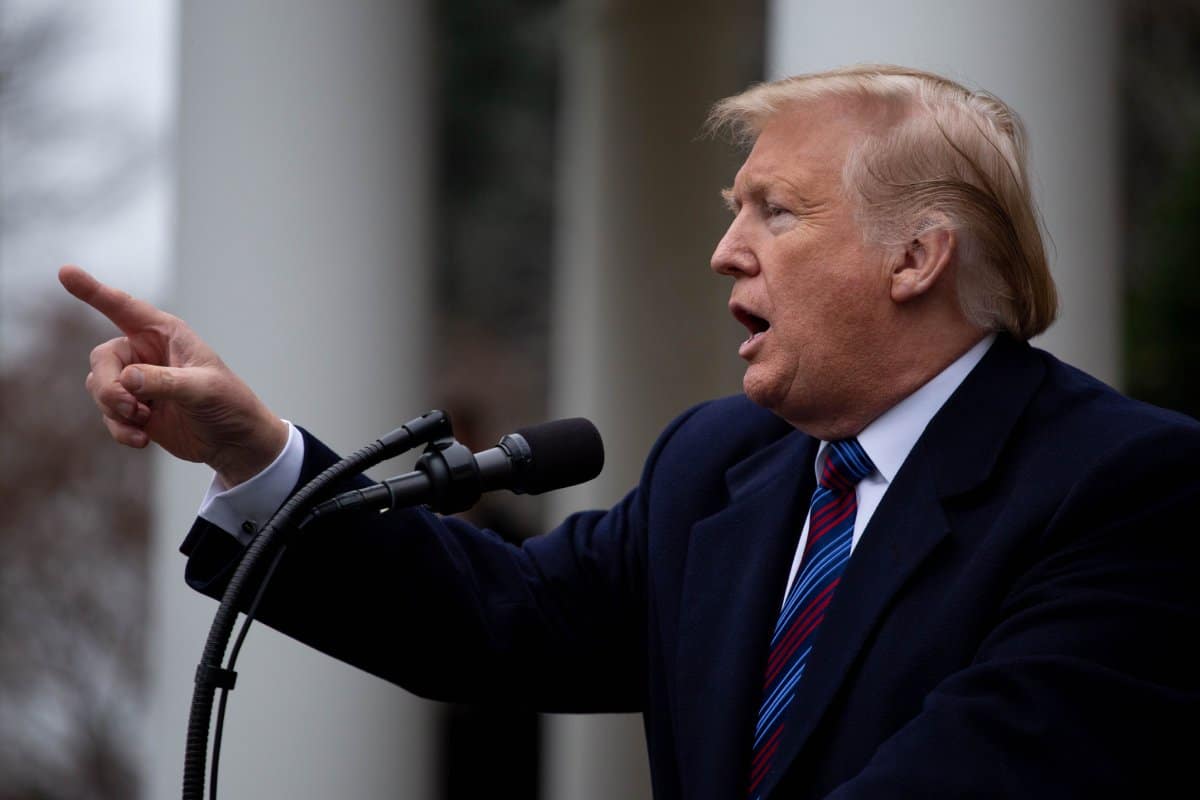It was revealed in a conference in Brussels that former President Donald Trump said in 2020 that the US would “never help” Europe if it was attacked. Now, European nations are grouping to commit more firepower to combat Putin’s threat to democracy.
Trump’s Warning at Davos 2020
At the World Economic Forum in Davos in 2020, Thierry Breton, a French European commissioner responsible for the internal market, revealed the warnings issued by then-President Donald Trump.
According to Breton, Trump asserted, “You need to understand that if Europe is under attack, we will never come to help you and to support you.”
This declaration came as a surprise to European capitalists, who are now concerned about the reliability of the transatlantic alliance. Trump went on to proclaim the demise of NATO, stating, “By the way, NATO is dead, and we will leave, we will quit NATO.”
NATO’s Alleged Demise
NATO, a cornerstone of European security for decades, faced unprecedented skepticism. Trump’s calls for European nations to increase their contributions and his threats to quit the alliance had far-reaching consequences.
The fragility of NATO became a recurring theme during his presidency, during which he constantly expressed concerns about its relevance.
European leaders, including Germany’s Ursula von der Leyen, then defense minister, resisted Trump’s demands and financial claims.
Financial Claims and Defence Spending
Trump insisted that Germany owed the U.S. $400 billion for defense, “And by the way, you [Germany] owe me $400bn,” he claimed, “because you didn’t pay, you Germans, what you had to pay for defence.”
Von der Leyen and other European leaders were caught in a debate about financial obligations within the alliance. The episode left European leaders wondering about the uncertain alliance and the need to reassess their defense budgets.
Thierry Breton’s characterization of Trump’s 2020 remarks as a “big wake-up call” reverberated in European capitals. The uncertainty surrounding Trump’s presidency and the possibility of his return has worried Brussels about the safety of Europe.
Lead in Polls
The quotes were revealed just before the upcoming Republican presidential primary. Trump holds a significant lead in the polls.
The realization that Europe might be “on its own” forced a sobering acknowledgment. As Politico reported, Breton said, “So now more than ever, we know that we are on our own, of course. We are a member of NATO, almost all of us, of course, we have allies, but we have no other options but to increase this pillar drastically in order to be ready [for] whatever happens.”
EU Leaders’ Versailles Declaration
Fast-forward to the present and EU leaders gathered at Versailles to unveil a groundbreaking declaration. The Versailles Declaration proved that European countries were all on the same page regarding the war in Ukraine.
The leaders signified their intention to collectively “invest more and better in defense capabilities and innovative technologies. Emmanuel Macron, addressing the urgency of the situation, stated, “We can see how our food, our energy, our defense are all issues of sovereignty.”
The leaders committed to investing more in defense capabilities, innovative technologies, and tighter cooperation among their armed forces. The Versailles Declaration became a symbol of Europe’s determination to combat the spread of Putin’s war machine, which leaders described as “a tectonic shift in European history.”
Mobilizing for Sovereignty
Macron, defending the Versailles Declaration, stressed that sovereignty had become a critical issue for Europe, “The Versailles Declaration is linked to the fact that sovereignty in Europe, which might have been thought of by some as a slogan or a French fantasy, is seen by all today as crucial.”
The commitment to invest in defense capabilities and technologies showcased a collective effort to strengthen the EU’s security posture.
The historic choices made by Germany, with its €100 billion commitment to defense, and Denmark’s decision to reconsider its position on EU security mechanisms further revealed the gravity of the moment.
Macron stated, “Everywhere you look historic choices are being made.”
EU’s Economic Power and Sanctions Against Russia
In response to Russia’s aggression, the EU used its economic might as a tool for diplomatic leverage without waging direct conflict.
“About 10 days ago, Germany decided to make historical investments, and Denmark made a historic choice, deciding to ask the people if they want to come back to the European defence and security project,” Macron said.
The EU announced measures such as denying Russia the most-favored-nation status, imposing tariffs, and banning luxury goods exports as a direct hit to the Russian elite.
Ursula von der Leyen reinforced the EU’s stance, declaring, “Those who sustain Putin’s war machine should no longer be able to enjoy their lavish lifestyle while bombs fall on innocent people in Ukraine.”
The post Trump: ‘No Help for Europe’ in Case of Attack, Critics Alarmed first appeared on Swift Feed.
Featured Image Credit: Shutterstock / Michael Candelori.

